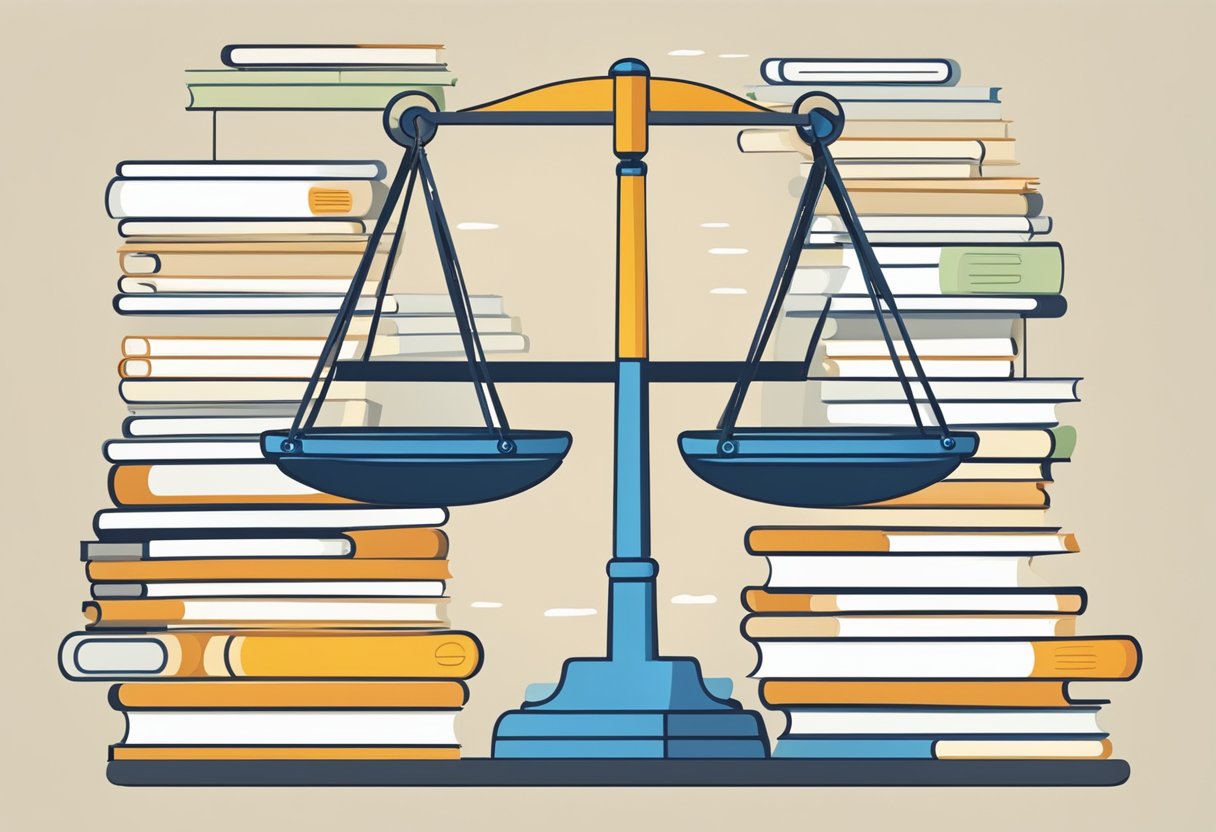Customer Service Legal Compliance: Navigating the Laws and Regulations
In customer service, staying on the right side of legal compliance is as crucial as delivering top-notch support. Companies operate under a slew of regulations to safeguard consumer rights and maintain ethical standards. The intersection of customer service and legal compliance is a dynamic space where updates and shifts in regulations are frequent. Businesses must remain vigilant to avoid the pitfalls of non-compliance, ranging from costly fines to damage to their reputation.

Adapting to call center compliance requirements necessitates a clear strategy. Teams should be well-versed in the latest regulations affecting their day-to-day operations, such as data protection laws and industry-specific guidelines. Staying compliant not only avoids legal hiccups but also fosters a trust-based relationship with customers. Transparency, accurate record-keeping, and regular training are part of the scaffolding that holds up compliant customer service practices.
With the accelerating pace of technological advancements and globalization, call centers and customer service departments encounter new complexities. For example, outsourcing customer service can introduce additional legal considerations. Businesses engaging with external call centers need to understand the legal ramifications and ensure that these partners adhere to the same standards as internal teams. Compliance isn’t just a box-ticking exercise; it’s a critical component that impacts customer trust and the overall success of a company’s customer service efforts.
Understanding Customer Service Legal Compliance
Customer service legal compliance isn’t just a set of rules companies need to follow—it’s the backbone of trust and integrity in business dealings. In essence, it’s about making sure that a company’s interactions with customers adhere to established laws and regulations.
Training and coaching play a huge role here. They equip customer service representatives with the knowledge they need to not just follow the rules, but also to deliver service that’s both compliant and high-quality. Think about it like this: you’re not just ticking boxes to keep regulators happy, but also building a relationship with your customers that’s based on reliability and trust.
Entities such as banks and financial institutions often find themselves under a microscope when it comes to regulatory compliance. They’re usually required to follow strict protocols to ensure legal compliance. So, what’s the deal with these regulations, anyway? Well, they’re there to protect the customer. By staying compliant, companies show they value their customers’ rights and privacy, reinforcing the trust customers place in them.
Why bother, though? Beyond the obvious legal repercussions, non-compliance can break the perceived integrity of a business—once trust is compromised, it’s a steep uphill battle to win it back. It’s about more than just avoiding penalties; it’s about establishing and maintaining a reputation for consistency and adherence to ethical standards.
In short, customer service legal compliance isn’t just a legal necessity; it’s a pillar of customer trust and service excellence.
Key Regulations and Acts

In customer service, staying legally compliant is non-negotiable. Companies must be aware of a variety of regulations and acts designed to protect consumer rights, ensure data privacy, and dictate specific conduct within contact centers. Key regulations include HIPAA, TCPA, GDPR, and TSR to name a few. Now let’s break down these essentials.
Consumer Protection Overview
Consumer protection laws, such as the Fair Debt Collection Practices Act (FDCPA), serve as a guardrail against unfair, deceptive, or abusive practices during the collection of debts. These laws provide guidelines on what debt collectors can and can’t do, aiming to treat consumers fairly and with respect.
Data Privacy Laws
In the realm of data privacy, the General Data Protection Regulation (GDPR) and California Consumer Privacy Act (CCPA) are particularly noteworthy. They regulate how businesses must handle the personal data of individuals within the EU and California, respectively. Under GDPR, consumers have the right to request data deletion, while CCPA gives California residents the right to know what personal information is being collected and for what purpose.
Contact Center Specific Legislation
Contact centers are governed by several specific legislative acts, notably the Telephone Consumer Protection Act (TCPA) and the Telemarketing Sales Rule (TSR). The TCPA limits telemarketing calls and the use of automated dialing systems, prerecorded voice messages, SMS text messages, and fax machines. The TSR requires telemarketers to make certain disclosures and prohibits misrepresentations, setting forth penalties for violations. In health-related customer service, the Health Insurance Portability and Accountability Act (HIPAA) mandates the protection and confidential handling of protected health information.
Building Customer Trust
When companies prioritize legal compliance in customer service, they strike a critical balance between regulatory requirements and customer expectations. This balance fosters trust, and customers often reward this trust with loyalty.
Transparency in Communications
A commitment to transparency is paramount. Customers have a right to clear information about the products and services they use. When businesses are transparent about their policies, practices, and fees, customers are more likely to trust them. Companies should use plain language and be upfront about terms, avoiding any possibility of misunderstanding. For example, being upfront about how fees are structured can significantly enhance the customer experience.
Protecting Customer Data
Protecting customer data is a non-negotiable aspect of building trust. With rising concerns about data breaches and privacy, customers expect businesses to treat their personal information with the utmost care. Proactive data protection measures such as regular security audits and transparent data usage policies illustrate to customers that a business takes their privacy seriously. Adopting robust security practices not only complies with the law but also reassures customers that their data is in safe hands.
Compliance Enforcement and Training

Ensuring legal compliance within customer service not only involves stringent enforcement measures but also comprehensive training programs. The goal is to integrate compliance into the very fabric of daily operations, particularly within call center environments.
Role of Call Center Manager
The call center manager plays a pivotal role in the enforcement of compliance. They must maintain a continual oversight of operations, ensuring that call center agents adhere to legal standards and company policies. By closely monitoring interactions and providing immediate feedback, a manager can identify and address compliance issues proactively.
Implementing Effective Training Programs
Effective training programs are integral to legal compliance. These programs should encompass a variety of learning materials, including simulated scenarios, interactive modules, and real-time coaching. Training must be an ongoing process, reflecting updates in compliance laws and internal protocols. Call center agents equipped with a strong foundation in compliance are better prepared to represent the company legally and ethically.
Creating a Compliance Checklist
When creating a Compliance Checklist, they start by pinpointing the specific compliance regulations relevant to their customer service operations. These regulations can involve data protection laws, industry-specific standards, or even regional legal requirements.
They include essential items like:
- Verification of policies and procedures alignment with legal standards.
- Assessment of training programs to ensure staff is aware of compliance parameters.
A typical checklist for a call center might look like this:
- Identify Legal Requirements: They make sure to identify which laws apply to their call center’s location and service scope.
- Document Policies: They meticulously document all customer service policies to cover regulatory expectations.
- Training Protocols: They confirm that every team member understands their role in maintaining compliance through regular training sessions.
- Annual Audits: They schedule and perform audits to review and improve their compliance status continually.
An effectively structured call center compliance checklist is tailored to the business’s risks and operations. For instance, a checklist for call center compliance may include:
- Data Security: They validate if customer information is handled and stored securely.
- Script Adherence: They check if agents follow approved scripts to ensure consistent and compliant communication.
Lastly, they recognize that this checklist is a living document; it evolves as regulations and business needs change. By regularly reviewing and updating their checklist, they make sure no vital compliance issue slips through the cracks.
Tools for Ensuring Compliance

To maintain customer service legal compliance, businesses often leverage advanced tools that help track and ensure adherence to regulatory requirements. These tools support various aspects of compliance, including data protection and network access security.
Call Center Technology
Call center technology has evolved to offer features that aid in PCI DSS compliance, an essential standard for companies handling credit card information. Solutions like encrypted databases and real-time monitoring systems allow call centers to protect sensitive data and prevent data breaches. Additionally, these technologies can restrict network access, safeguarding against unauthorized use.
CRM Systems
CRM (Customer Relationship Management) systems are pivotal in managing customer interactions and ensuring compliance. They help in documenting all communications and transactions, which is critical for cybersecurity and legal accountability. Many CRMs also offer automated workflows to ensure that every step follows established regulations, from data storage to customer consent for information use.
Monitoring and Adhering to Compliance Measures

When it comes to customer service, closely tracking compliance is vital not just for legal reasons but also for maintaining the trust of customers. It involves consistent oversight to ensure that all interactions and procedures meet regulatory standards and company policies.
Call Monitoring
One must be careful when monitoring calls, as it intersects with data privacy regulations. They must obtain consent from all parties before call monitoring can begin to avoid legal repercussions. It ensures that the organization is transparent with its call monitoring practices and respects customer privacy. Recorded calls are often evaluated against performance metrics to enhance service quality while adhering to compliance measures.
Compliance Audits
Compliance audits are essential for assessing an organization’s adherence to legal obligations and internal guidelines. Auditors will review policies, procedures, and records to ensure governance standards are upheld. Frequent audits help in identifying any non-compliance issues proactively, thus mitigating potential risks. These audits provide a comprehensive view of how well the company meets industry standards and regulations, offering insights for further improvement.
Handling Sensitive Information

When it comes to customer service, legal compliance isn’t just a fancy phrase—it’s the backbone of trust. A customer hands over their info with the expectation that a business will keep it under lock and key. So let’s dive into the do’s and don’ts of handling two types of sensitive customer data: health info and financial digits.
Patient Health Data
When handling patient health data, companies need to treat it with the utmost care. The Health Insurance Portability and Accountability Act (HIPAA) sets the bar high for how to manage this type of sensitive customer information. Businesses that deal with health data must follow HIPAA rules to the letter, which means taking steps like encrypting data and training staff on the proper protocols.
- HIPAA Compliance: Must-dos to keep patient data in check.
- Encrypt patient files and databases.
- Regular staff training sessions.
They need to ensure that access to personal health records is locked down, only available to those who absolutely need it for their jobs, and that there’s a clear trail of who’s peeked at that info and when.
Financial Information Security
Now, shuffle over to financial information security. It’s no secret that a credit card breach can wreak havoc quicker than you can say “identity theft.” That’s where PCI compliance comes into play. Payment Card Industry Data Security Standard (PCI DSS) guidelines are like the secret sauce for keeping payment information secure.
- PCI Compliance: A checklist to safeguard payment deeds.
- Secure payment systems and networks.
- Regular monitoring and testing.
But that’s not the only alphabet soup in the mix. The General Data Protection Regulation (GDPR) also has a say if the business operates in or deals with anyone from the European Union. GDPR compliance ensures that customers have a say in how their data gets handled—like giving a nod of approval before their data is collected or saying “no thanks” to marketing emails.
Handling sensitive info is a huge responsibility. By sticking to the guidelines, companies don’t just stay out of hot water; they build a fortress of trust with their customers. It’s all about making sure that sensitive customer information, whether it’s a health record or credit card number, stays safe and sound.
Maintaining Compliance in a Changing Landscape

As landscape of compliance regulations shifts, businesses in customer service need to be agile. They must stay informed and quickly adapt to new regulations to maintain compliance and ensure consumer protection.
Adapting to New Regulations
They face a complex task as governments and regulatory bodies, like Ofcom, frequently update rules to protect consumers. When new regulations come into play, companies must reassess their protocols and adjust their practices. This often involves integrating new technologies or undergoing staff training to stay on top of changes in the DNC list and other compliance requirements.
Global Compliance Challenges
For businesses operating across borders, global compliance is a multifaceted challenge. Different countries have varying regulations, and they must navigate this international maze to stay compliant everywhere they operate. It’s crucial for them to monitor these divergent regulations closely to avoid the repercussions of non-compliance, which may include hefty fines and damaged customer trust.
Call Center Compliance Issues and Resolutions

In the landscape of call center operations, consumer trust is a currency they can’t afford to lose. Adhering to contact center compliance is not just a legal mandate; it’s a cornerstone for success and recognition in the industry. However, they often navigate through a minefield of call center compliance issues.
Telemarketers and call centers grapple with maintaining compliance while balancing the need for a seamless customer experience. To address these issues, they must implement strategic resolutions.
Compliance Issues
- Unauthorized Call Recording: Recording calls without consent is a breach of privacy laws.
- Outbound Dialing Missteps: Ignoring Do Not Call (DNC) lists leads to hefty penalties.
- Security of Payment Information: Lapses can compromise sensitive data like credit card details.
- Data Protection: Sharing health-related and personal information without permission.
Resolutions
- Consent is Key: Always obtain and document consent before recording calls.
- Respect the DNC: Employ systems to automatically skip DNC listed numbers.
- Secure Payment Data: Follow Payment Card Industry (PCI) compliance guidelines to the letter.
- Guard Personal Data: Implement robust data protection policies.
By turning compliance into a traditional part of their operational ethos, call centers can foster trust, evade the pitfalls of non-compliance, and continue delivering top-notch customer service.
Budgeting for Compliance

When a company prioritizes customer service legal compliance, they must consider both the availability of resources and the impact on their budgets. It’s crucial that they strike the right balance to ensure cost efficiency and adherence to regulatory requirements.
Allocating Resources
Budgeting for compliance starts with understanding what resources are available and necessary. A business should identify specific team members who will focus on compliance matters, such as monitoring calls and handling data securely. They might allocate funds to specialized training provided by experts in fields like PCI—Payment Card Industry compliance to ensure their call centers handle customer payments correctly. Additionally, having the right technology in place is key for safeguarding customer information, necessitating investment in secure systems and software.
Cost-Benefit Analysis
A careful cost-benefit analysis is essential in justifying the expenses related to compliance. This analysis evaluates potential risks against the costs of implementing compliance measures. Compliance efforts, while sometimes costly, protect against legal repercussions and foster customer trust. Companies may refer to resources such as Assent’s Proactive Compliance in 2024 to understand the top disruptors and regulatory updates that can impact their compliance strategy. By doing so, they can plan and execute a proactive approach that aligns with their budgets to avoid any unnecessary expenditures.
Frequently Asked Questions

In the realm of customer service, legal compliance is not just about following laws; it’s about understanding how these laws apply to daily interactions with customers. These FAQs dive into the practicalities of ensuring that customer service operations are both effective and legally sound.
How does a company ensure compliance with the TCPA in a customer service context?
A company ensures compliance with the TCPA by obtaining prior express consent from customers before making automated calls or sending texts. It’s also crucial to maintain records of consent and provide an easy opt-out mechanism.
What are some common legal requirements for customer service in a business?
Some common legal requirements for customer service include protecting customer privacy, adhering to the Fair Debt Collection Practices Act, and following guidelines for truth in advertising. Businesses must also ensure they are accessible under the Americans with Disabilities Act.
Can you define legal compliance in relation to customer interactions?
Legal compliance in relation to customer interactions refers to adhering to laws and regulations governing data protection, consumer rights, and transaction transparency. Every customer touchpoint should respect these legal frameworks to avoid the ramifications of non-compliance.
What job roles typically handle legal issues within customer service departments?
Roles such as compliance officers, legal advisors, and customer service managers typically handle legal issues within customer service departments. They work together to ensure policies are up-to-date and staff are trained on legal matters.
How should a business handle customer complaints to maintain legal compliance?
Businesses should handle customer complaints with a clear, documented process that respects consumer protection laws and resolves issues promptly. Recording complaints, providing timely responses, and escalating when needed are part of maintaining legal compliance.
In what ways can legal call centers help with compliance for customer service?
Legal call centers help with compliance by implementing procedures adherent to laws like the CDD Rule, which mandates diligent customer due diligence. They ensure appropriate data handling and verification processes are in place.


